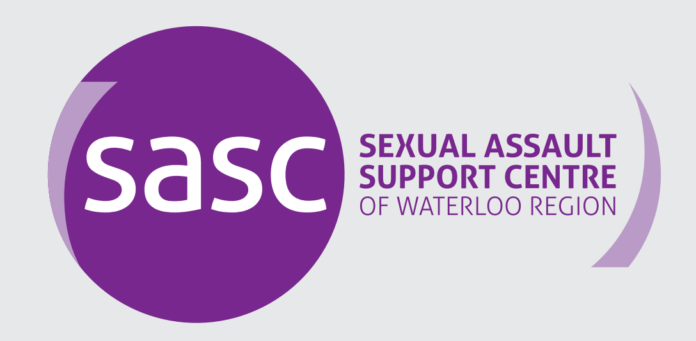The Sexual Assualt Support Centre (SASC) of Waterloo Region has released their strategic plan for 2022 to 2025. The Support Centre provides important community resources to Waterloo students such as free and confidential counseling for those who have experienced sexual violence. The new plan outlines five strategic directions for the organization and identifies potential challenges and opportunities in the upcoming years. The plan was formulated by incorporating input from a broad range of stakeholders ranging from donors, volunteers and clients to community partners, employees and board members.
The Support Centre was founded in 1989 by local women, many of whom experienced sexual violence themselves, in an effort to address the decade-long absence of community resources for survivors of sexual violence in the Waterloo Region. During its first two months of operation, the Support Centre was entirely volunteer-run, relying on 25 volunteers. It was only thanks to a $30,000 grant from Sun Life Financial that the Support Centre was able to secure office space and hire an employee.
Currently, the Support Centre offers survivors access to a 24-hour support line, counseling and advocacy services, support groups, a broad range of workshops, legal advocacy and a family court support program. In addition, those experiencing sexual exploitation or those who are at risk can access the Support Centre’s anti-human trafficking program. The Support Centre also provides education services to schools, professionals and the broader community in an effort to promote social change through education.
The five strategic directions that will guide the Support Centre through 2022 to 2025 are: reducing wait time for survivors seeking support, supporting the wellbeing of employees, curating programs to address the specific intersectional needs of survivors, expanding fundraising capabilities and investing in long term solutions to gender-based violence. The strategic plan will be updated on an annual basis to address any changes in environmental factors.
While the plan itself details several challenges the Support Centre is expected to face, executive director Sara Casselman emphasized that the main obstacle for the organization is the lack of necessary funds to provide services that are becoming increasingly in demand. She explained, “With COVID, survivors are feeling more isolated and needing more support than ever. We actually saw a 362 per cent increase in participants in our support groups. I think the biggest impact of Covid …[is that] people don’t have access to the same supports they used to have. We’ve seen a 62 per cent increase … in requests for individual counseling for survivors of sexual violence.”
The Support Centre has experienced tremendous growth over the past four years. Through fundraising efforts, the Support Centre’s operating budget increased 187 per cent from 2017 to 2021. During that same time period, the number of full-time employees nearly tripled, growing from 11 people to 30. Casselman acknowledged how impressive this growth was, yet stressed that it is not enough. “We still had 169 survivors on our waiting list for support [as of last month]. So our Centre has grown but the demand for support has grown faster than us. Six [or] seven years ago if we had 40 survivors on our waiting list … we would have felt that that was a crisis [and] would have looked at every kind of way to try and get support for those waiting.”
Casselman went on to add, “There’s been a cultural shift in recent years where survivors who maybe [have been] used to suffering without support are reaching out. Right now we have some people that have been waiting almost a year to get into counseling. Things are always shifting and changing, we’re always adapting and trying to meet the need in our community. I think we will have grown enough when we’re at a point where a survivor calls in for support and they can access it right away, without waiting lists. That’s what we’re continuing to do, to try and grow until survivors can readily and easily access support.”
When asked about the consistency of fundraising, Casselman said, “The truth is, when issues are highlighted in the community people tend to respond. While we would really like … sexual violence to be something that is on the agenda for everyone all the time, sometimes, when really challenging things happen, it forces [the public to pay attention]. I think that is the nature of how the world is, when something bad or something really significant is in the news it draws attention to it.”
Casselman highlighted the important impact of the MeToo movement. Coined by Tarana Burke and popularized by Alyssa Milano, #MeToo opened the doors for survivors to share their stories of abuse. “When the metoo movement hit … all those pieces together created a cultural shift where it was more in people’s minds and more survivors were reaching out for support than ever before. The last number of years have been fairly transformational in terms of sexual violence being more on the hearts and minds of folks in our communities. The resources have’nt necessarily caught up [to the demand for support].”
Casselman explained that the Support Centre must devote energy to fundraising out of necessity, which takes away focus from survivors. She added “if we were just able to focus on supporting survivors and creating social change we would be more effective. I believe that sexual assault centres and domestic violence shelters should be funded like an essential service in our community.” In the interim, the Support Centre continues to rely on the goodwill of private benefactors































